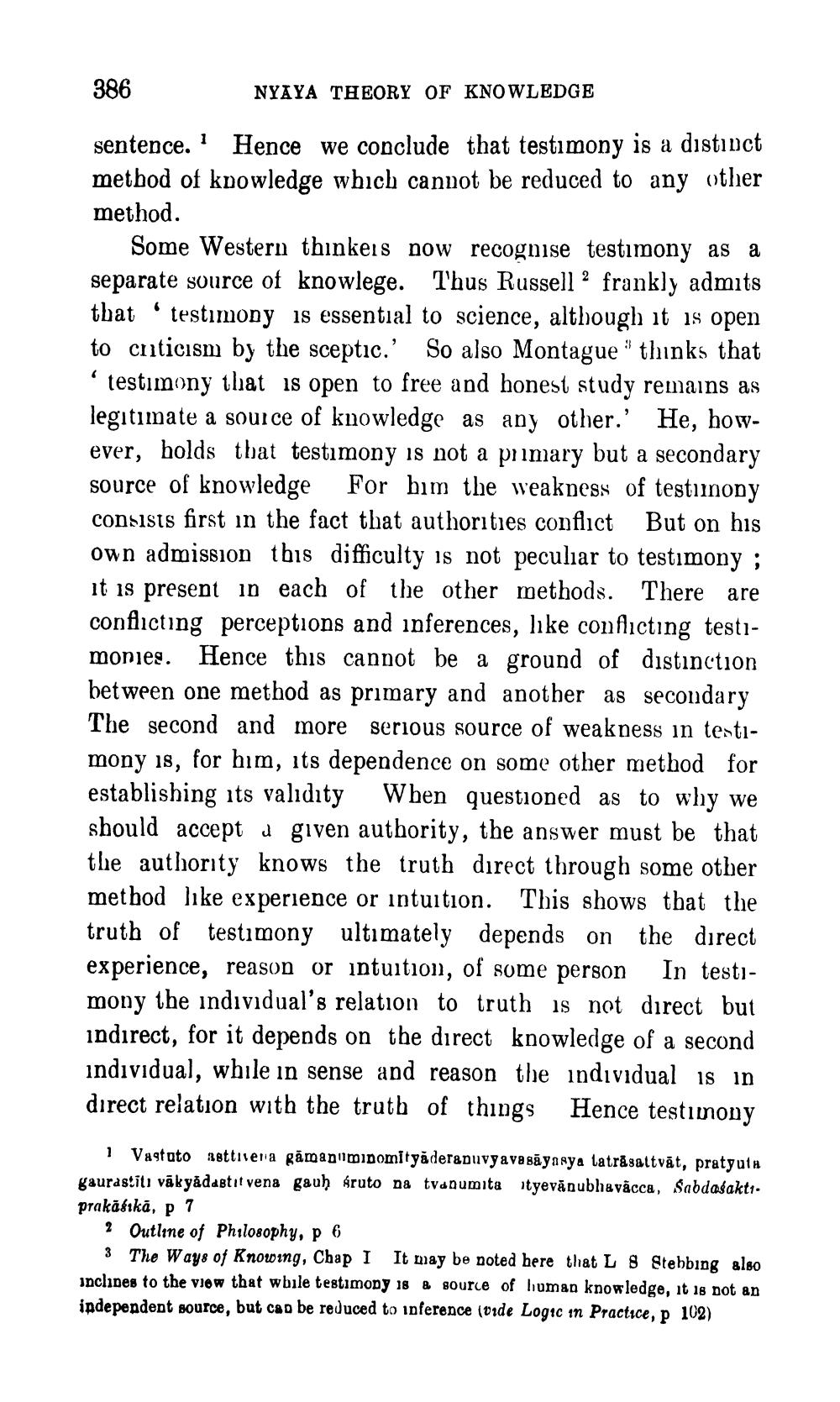________________
386
NYAYA THEORY OF KNOWLEDGE
sentence.' Hence we conclude that testimony is a distinct method of knowledge which cannot be reduced to any other method.
Some Western thinkers now recognise testimony as a separate source of knowlege. Thus Russell ? frankly admits that "testimony is essential to science, although it is open to cnticism by the sceptic. So also Montague" thinks that ' testimony that is open to free and honest study remains as legitimate a source of knowledge as any other.' He, however, holds that testimony is not a primary but a secondary source of knowledge For him the weakness of testimony consists first in the fact that authorities conflict But on his own admission this difficulty is not peculiar to testimony ; it is present in each of the other methods. There are conflicting perceptions and inferences, like conflicting testimonies. Hence this cannot be a ground of distinction between one method as primary and another as secondary The second and more serious source of weakness in testimony is, for him, its dependence on some other method for establishing its validity When questioned as to why we should accept a given authority, the answer must be that the authority knows the truth direct through some other method like experience or intuition. This shows that the truth of testimony ultimately depends on the direct experience, reason or intuition, of some person In testimony the individual's relation to truth is not direct but indirect, for it depends on the direct knowledge of a second individual, while in sense and reason the individual is in direct relation with the truth of things Hence testimony
1 Vastatoasttasera gämanipipomityăderapuvyavasāyasya tatrăsattvät, pratyuta gaurastiti vākyädastit vena gauh śruto na tvapumita tyevānubhavacca, Sabdaśaktı. prakāśıkā, p 7
2 Outline of Philosophy, p 6
3 The Ways of Knowing, Chap I It may be noted here that L 8 Stebbing also inclines to the viow that wbile testimony 18 & source of human knowledge, it is not an independent source, but can be reduced to inference (vrde Logic in Practice, p 102)




